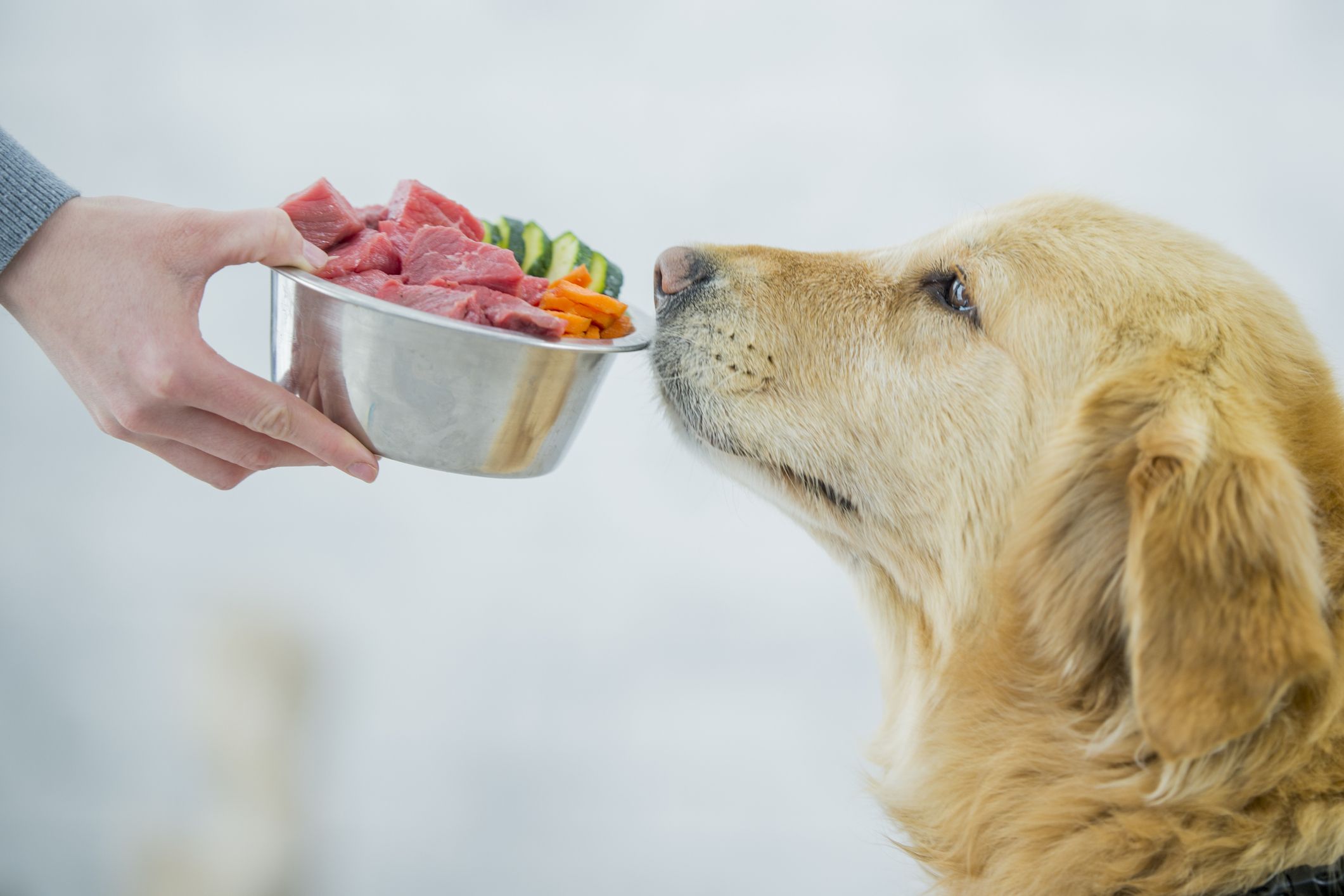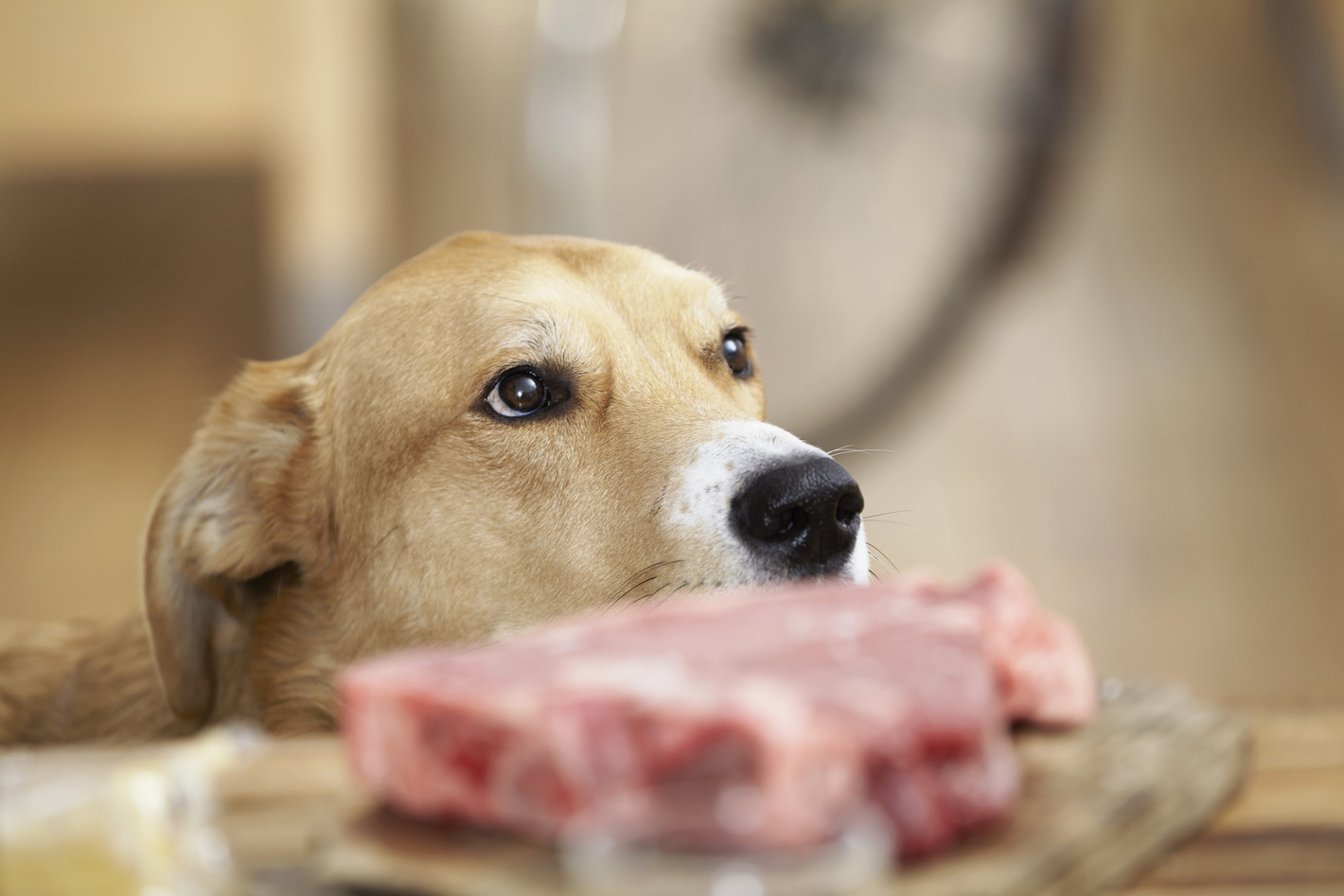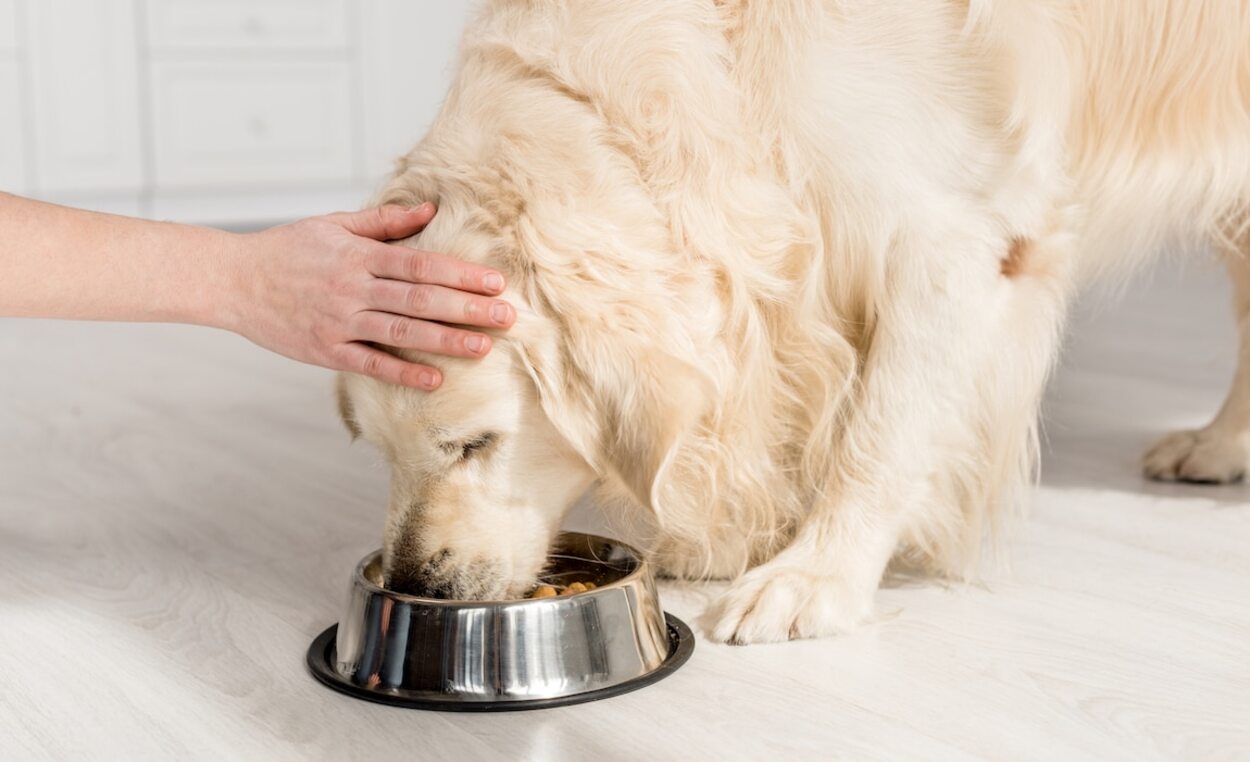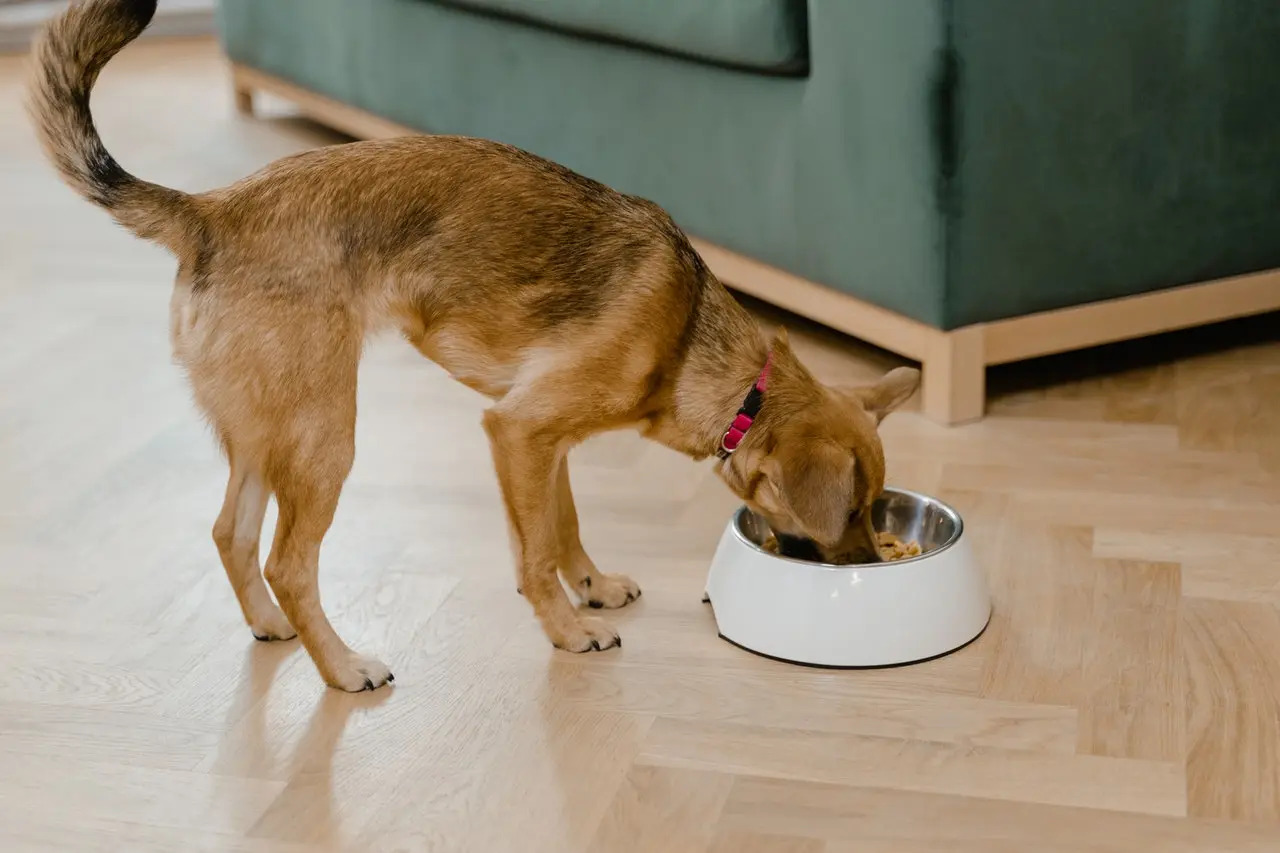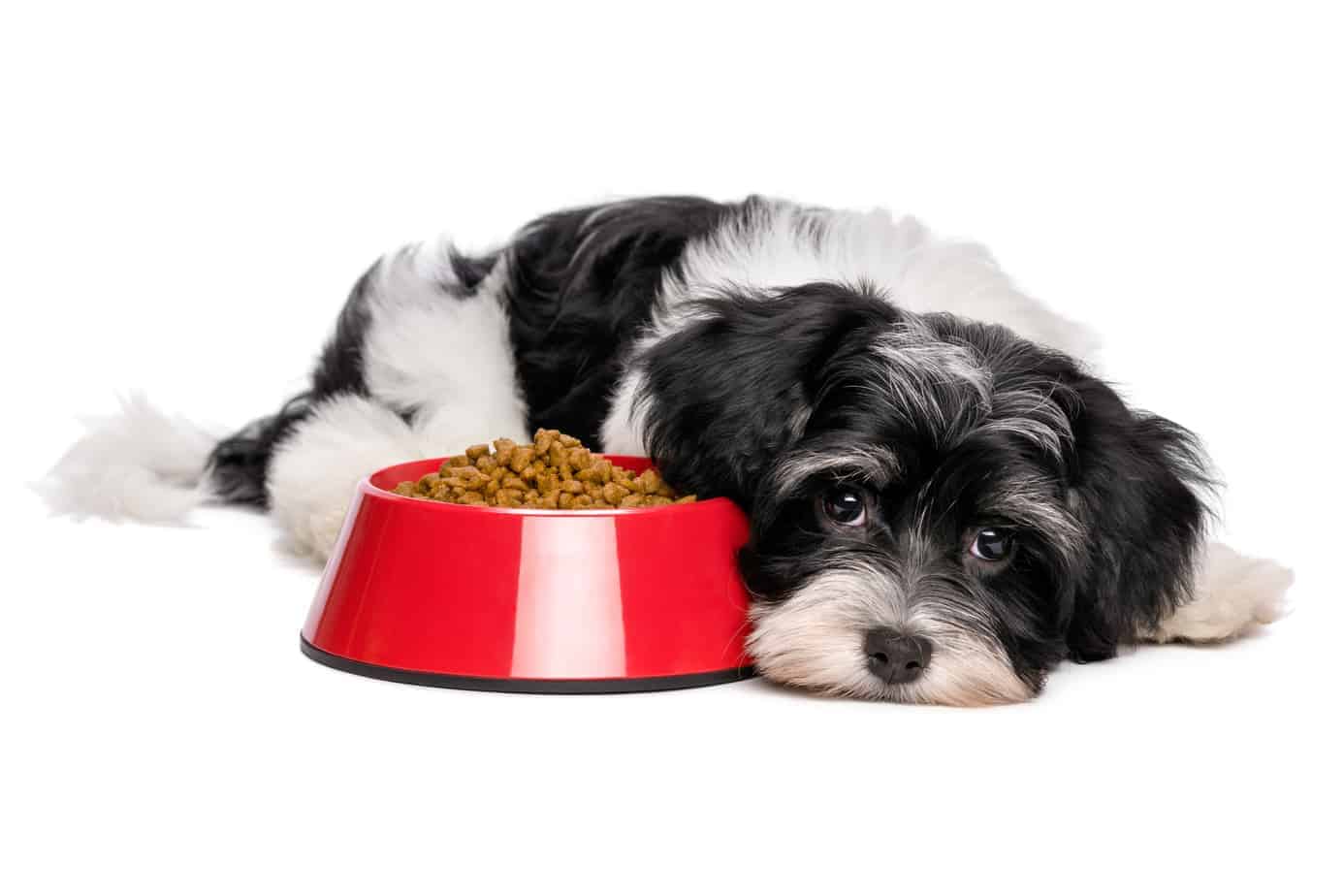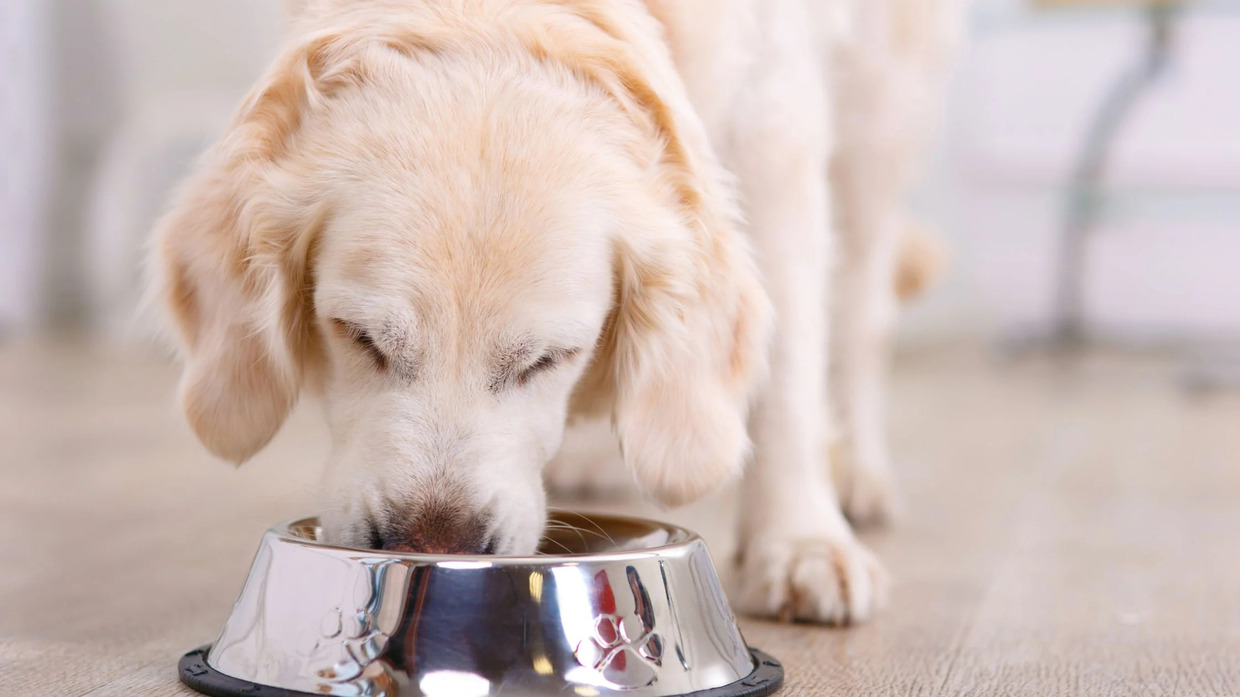Home>Health & Wellness>Nutrition & Diet>How Frequent Are Bowel Movements For Dogs On Raw Diet


Nutrition & Diet
How Frequent Are Bowel Movements For Dogs On Raw Diet
Published: January 27, 2024
Discover the impact of a raw diet on your dog's bowel movements. Learn about nutrition and diet for optimal canine health.
(Many of the links in this article redirect to a specific reviewed product. Your purchase of these products through affiliate links helps to generate commission for Pawsomeoldies.com, at no extra cost. Learn more)
Table of Contents
Introduction
Transitioning to a raw diet is a significant decision for dog owners, as it involves a shift from conventional commercial pet foods to a diet that mirrors what dogs' ancestors consumed in the wild. This dietary approach emphasizes feeding dogs uncooked meat, bones, fruits, and vegetables, aiming to provide a more natural and nutrient-dense alternative to processed kibble. As more pet owners seek to optimize their furry companions' nutrition, the raw diet has gained popularity for its potential health benefits.
The impact of a raw diet on a dog's bowel movements is a topic of interest and importance for pet owners and veterinarians alike. Understanding the frequency and characteristics of bowel movements in dogs on a raw diet is crucial for assessing their digestive health and overall well-being. By delving into this subject, we can gain insights into the potential effects of a raw diet on dogs' gastrointestinal functions and identify signs of healthy digestion or possible concerns.
In this article, we will explore the frequency of bowel movements in dogs following a raw diet, considering various factors that influence their digestive patterns. Additionally, we will discuss the indicators of healthy bowel movements in dogs and potential issues that may arise when transitioning to or maintaining a raw diet. By shedding light on these aspects, we aim to provide valuable guidance for dog owners navigating the realm of raw feeding and seeking to ensure their pets' digestive wellness.
Read more: How Do I Switch My Dog To A Raw Food Diet
Understanding the Raw Diet for Dogs
The raw diet for dogs, also known as the BARF diet (Biologically Appropriate Raw Food), is rooted in the principle of providing canines with a diet that closely resembles what their ancestors consumed in the wild. This dietary approach emphasizes feeding dogs uncooked meat, edible bones, organs, fruits, and vegetables, aiming to offer a more natural and nutrient-dense alternative to conventional processed pet foods.
Advocates of the raw diet believe that it aligns with the natural carnivorous tendencies of dogs, asserting that their digestive systems are best suited for processing raw, whole foods. Proponents of this feeding regimen argue that it can lead to various potential benefits, including improved digestion, healthier coat and skin, increased energy levels, and better weight management.
The raw diet typically consists of a variety of raw meats, such as beef, chicken, turkey, and lamb, along with raw bones that are considered safe for consumption. Additionally, it may include organ meats like liver and kidney, as well as fruits and vegetables that offer essential vitamins, minerals, and fiber.
One of the key principles of the raw diet is the exclusion of grains, fillers, artificial additives, and preservatives commonly found in commercial pet foods. This departure from processed ingredients is intended to eliminate potential allergens and enhance the overall nutritional quality of the diet.
It's important to note that the raw diet for dogs requires careful planning and attention to ensure that it meets the animal's nutritional requirements. Pet owners who opt for this feeding approach often engage in thorough research or consult with veterinary professionals to create balanced meal plans that provide the necessary nutrients for their dogs' optimal health.
By understanding the fundamental principles and components of the raw diet for dogs, pet owners can make informed decisions regarding their pets' nutrition and well-being. This dietary approach reflects a commitment to providing dogs with a diet that prioritizes natural, unprocessed ingredients, aiming to support their overall health and vitality.
Factors Affecting Bowel Movements in Dogs
Several factors can influence the frequency and characteristics of bowel movements in dogs, including those following a raw diet. Understanding these factors is crucial for pet owners seeking to assess their dogs' digestive health and identify potential issues. Here are the key elements that can impact bowel movements in dogs:
Diet Composition:
The composition of a dog's diet, particularly in the context of a raw feeding regimen, plays a significant role in their bowel movements. A diet rich in raw meat, bones, and organs, along with appropriate amounts of fruits and vegetables, can contribute to healthy digestion. The presence of essential nutrients, natural enzymes, and dietary fiber from raw foods can support regular and well-formed bowel movements in dogs.
Hydration:
Adequate hydration is essential for maintaining healthy bowel function in dogs. Raw diets typically have a higher moisture content compared to dry kibble, which can contribute to better hydration. Sufficient water intake supports the smooth passage of stool through the digestive tract, helping to prevent constipation and promote regular bowel movements.
Exercise and Activity:
Physical activity and exercise play a role in promoting gastrointestinal motility in dogs. Regular exercise can help stimulate bowel movements and contribute to overall digestive health. Dogs that engage in sufficient physical activity are more likely to experience regular and consistent bowel movements, regardless of their dietary regimen.
Individual Sensitivities:
Each dog may have unique sensitivities or intolerances to certain foods, including those present in a raw diet. Some dogs may experience digestive upset or irregular bowel movements in response to specific ingredients. Identifying and addressing individual sensitivities is crucial for optimizing digestive wellness and ensuring comfortable bowel movements for dogs on a raw diet.
Transition Period:
When transitioning to a raw diet, dogs may experience temporary changes in their bowel movements as their digestive systems adapt to the new food regimen. It's not uncommon for dogs to undergo an adjustment period during which their bowel movements may vary in frequency and consistency. This transitional phase typically stabilizes as the dog's digestive system acclimates to the raw diet.
By considering these factors, pet owners can gain insights into the dynamics of their dogs' bowel movements and make informed decisions regarding their dietary and lifestyle choices to support optimal digestive health. Understanding the interplay of these elements can contribute to maintaining regular, healthy bowel movements in dogs following a raw diet.
Frequency of Bowel Movements in Dogs on Raw Diet
The frequency of bowel movements in dogs on a raw diet can vary based on several factors, including diet composition, hydration, exercise, individual sensitivities, and the transition period. When dogs transition to a raw diet, their bowel movements may undergo changes as their digestive systems adapt to the new food regimen. It's essential for pet owners to monitor and understand the dynamics of their dogs' bowel movements to ensure their digestive health and overall well-being.
In the context of a raw feeding regimen, the composition of a dog's diet plays a significant role in determining the frequency of bowel movements. A diet rich in raw meat, bones, organs, fruits, and vegetables can contribute to healthy digestion, potentially leading to regular and well-formed bowel movements. The presence of essential nutrients, natural enzymes, and dietary fiber from raw foods supports smooth digestion and can influence the frequency of bowel movements in dogs.
Hydration is another crucial factor affecting bowel movements in dogs on a raw diet. Raw diets typically have a higher moisture content compared to dry kibble, contributing to better hydration. Adequate water intake supports the smooth passage of stool through the digestive tract, helping to prevent constipation and promote regular bowel movements.
Furthermore, exercise and physical activity play a role in promoting gastrointestinal motility in dogs. Regular exercise can stimulate bowel movements and contribute to overall digestive health. Dogs that engage in sufficient physical activity are more likely to experience regular and consistent bowel movements, irrespective of their dietary regimen.
Individual sensitivities to certain foods can also impact the frequency of bowel movements in dogs. While a raw diet is generally well-tolerated by many dogs, some may have sensitivities or intolerances to specific ingredients. Identifying and addressing individual sensitivities is crucial for optimizing digestive wellness and ensuring comfortable bowel movements for dogs on a raw diet.
During the transition period to a raw diet, dogs may experience temporary changes in their bowel movements as their digestive systems adapt to the new food regimen. It's not uncommon for dogs to undergo an adjustment phase during which their bowel movements may vary in frequency and consistency. This transitional period typically stabilizes as the dog's digestive system acclimates to the raw diet.
By considering these factors, pet owners can gain insights into the dynamics of their dogs' bowel movements and make informed decisions regarding their dietary and lifestyle choices to support optimal digestive health. Understanding the interplay of these elements can contribute to maintaining regular, healthy bowel movements in dogs following a raw diet.
Read more: How Much Raw Meat Diet Is Needed For Dogs
Signs of Healthy Bowel Movements in Dogs
Healthy bowel movements are indicative of a dog's overall digestive wellness and can serve as a vital indicator of their dietary and gastrointestinal health. Recognizing the signs of healthy bowel movements in dogs is essential for pet owners, as it allows them to monitor their pets' well-being and promptly identify any potential concerns. Here are the key signs of healthy bowel movements in dogs:
-
Consistency: Healthy stool from a dog on a raw diet is typically well-formed and moist, reflecting the adequate hydration provided by the diet's higher moisture content. The stool should hold its shape without being too hard or too soft, indicating a balanced and healthy digestive process.
-
Frequency: Dogs on a raw diet often exhibit regular and consistent bowel movements, reflecting the efficient digestion and utilization of nutrients from the raw foods they consume. While individual dogs' bowel movement frequencies may vary, a predictable pattern of elimination is a positive sign of digestive health.
-
Minimal Straining: Healthy bowel movements in dogs should occur without excessive straining or discomfort. Dogs on a raw diet may experience smoother and more effortless elimination due to the diet's emphasis on natural, unprocessed ingredients that support optimal digestion and gastrointestinal motility.
-
Absence of Undigested Food: A sign of effective digestion in dogs on a raw diet is the absence of undigested food particles in their stool. Well-digested meals result in stools that do not contain recognizable pieces of food, indicating that the dog's digestive system is efficiently breaking down and assimilating nutrients from the raw diet.
-
Limited Odor: While all stool has a natural odor, healthy bowel movements from dogs on a raw diet may exhibit reduced foul odor compared to stools produced on conventional diets. This can be attributed to the absence of artificial additives and fillers in the raw diet, resulting in stools that are less pungent and indicative of a well-functioning digestive system.
By recognizing these signs of healthy bowel movements in dogs on a raw diet, pet owners can gain valuable insights into their pets' digestive well-being. Monitoring these indicators allows for the early detection of any deviations from normal bowel movements, enabling prompt intervention and adjustments to support the dog's overall health and comfort.
Understanding the characteristics of healthy bowel movements in dogs is an integral aspect of responsible pet ownership, as it empowers owners to actively participate in their pets' digestive health and well-being. By observing and interpreting these signs, pet owners can contribute to maintaining their dogs' optimal digestive function and overall vitality while following a raw diet.
Potential Issues with Bowel Movements on Raw Diet
While the raw diet for dogs offers numerous potential benefits, it is essential for pet owners to be aware of potential issues that may arise concerning their dogs' bowel movements. Understanding these challenges is crucial for maintaining the digestive health and overall well-being of dogs following a raw diet.
One potential issue that can affect bowel movements in dogs on a raw diet is dietary imbalance. Despite the emphasis on providing natural, nutrient-dense foods, there is a risk of nutritional imbalances if the raw diet is not properly planned and executed. Insufficient or excessive intake of certain nutrients, such as calcium or essential fatty acids, can lead to digestive disturbances and irregular bowel movements in dogs. Therefore, meticulous meal planning and consultation with veterinary professionals are essential to ensure that the raw diet meets the dog's nutritional requirements.
Another concern related to bowel movements on a raw diet is the risk of bacterial contamination. Raw meat, bones, and other components of the diet can potentially harbor harmful bacteria, such as Salmonella and E. coli, posing a risk of gastrointestinal infections in dogs. Consumption of contaminated raw foods can lead to diarrhea, vomiting, and other digestive issues, impacting the frequency and consistency of bowel movements. Proper handling, storage, and hygiene practices are imperative to mitigate the risk of bacterial contamination and safeguard the dog's digestive health.
Additionally, dietary intolerances or sensitivities can manifest as digestive issues affecting bowel movements in dogs on a raw diet. While the raw diet is generally well-tolerated, some dogs may exhibit adverse reactions to specific ingredients, resulting in diarrhea, constipation, or irregular stools. Identifying and addressing these sensitivities is essential for optimizing the dog's digestive wellness and ensuring comfortable bowel movements.
Furthermore, inadequate hydration can contribute to bowel movement issues in dogs on a raw diet. While raw diets typically have a higher moisture content, insufficient water intake can still lead to dehydration, impacting the dog's digestive function and stool consistency. Ensuring that dogs have access to fresh, clean water at all times is crucial for supporting healthy bowel movements and overall hydration.
By being mindful of these potential issues, pet owners can take proactive measures to address and mitigate challenges related to their dogs' bowel movements on a raw diet. Through careful dietary planning, hygiene practices, and attentive monitoring, pet owners can promote optimal digestive health and ensure that their dogs experience comfortable and regular bowel movements while following a raw feeding regimen.
Conclusion
In conclusion, the frequency and characteristics of bowel movements in dogs on a raw diet are influenced by various factors, including diet composition, hydration, exercise, individual sensitivities, and the transition period. The raw diet, with its emphasis on unprocessed, nutrient-dense foods, has the potential to support healthy digestion and regular bowel movements in dogs. By providing a diet rich in raw meat, bones, organs, fruits, and vegetables, pet owners can contribute to their dogs' overall well-being and digestive health.
Recognizing the signs of healthy bowel movements in dogs, such as well-formed and moist stools, regular elimination, minimal straining, absence of undigested food, and limited odor, allows pet owners to monitor their pets' digestive wellness effectively. Additionally, being mindful of potential issues, including dietary imbalance, bacterial contamination, sensitivities, and hydration, empowers pet owners to address and mitigate challenges related to their dogs' bowel movements on a raw diet.
It is essential for pet owners to approach the raw diet for dogs with careful planning and attention to detail, ensuring that the diet meets the animal's nutritional requirements and supports optimal digestive function. Consulting with veterinary professionals and engaging in thorough research can aid in creating balanced meal plans that promote the well-being of dogs following a raw feeding regimen.
By understanding the dynamics of bowel movements in dogs on a raw diet and actively participating in their pets' digestive health, pet owners can contribute to maintaining their dogs' optimal digestive function and overall vitality. The raw diet, when thoughtfully implemented and monitored, has the potential to offer dogs a natural and nutrient-rich dietary approach that aligns with their carnivorous tendencies and supports their overall health and well-being.
